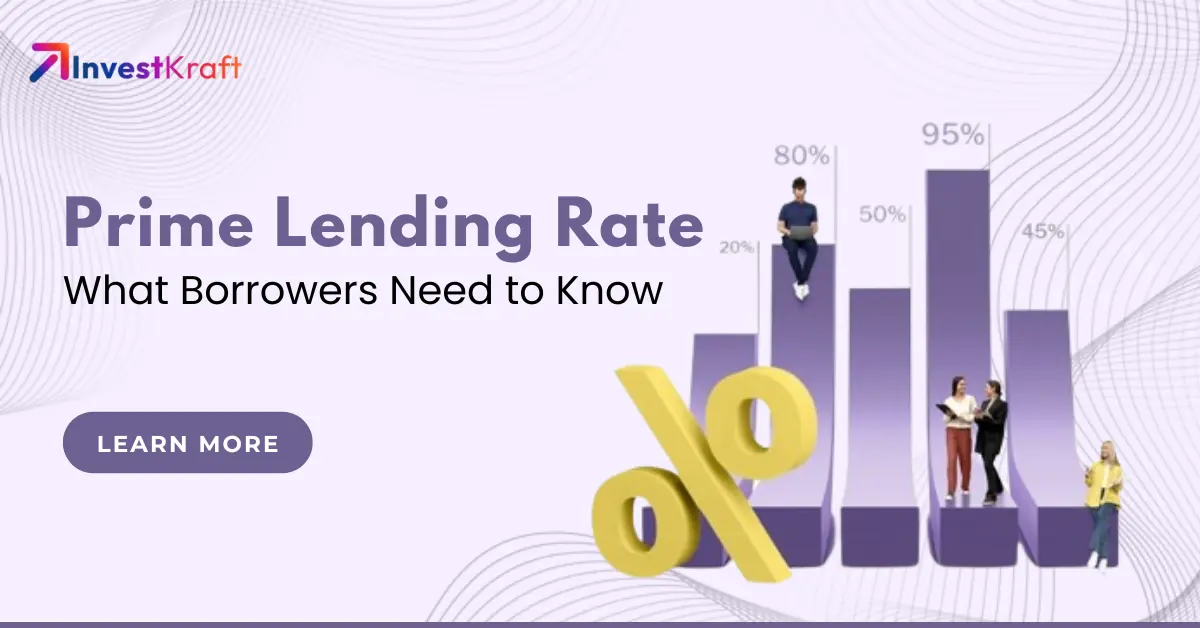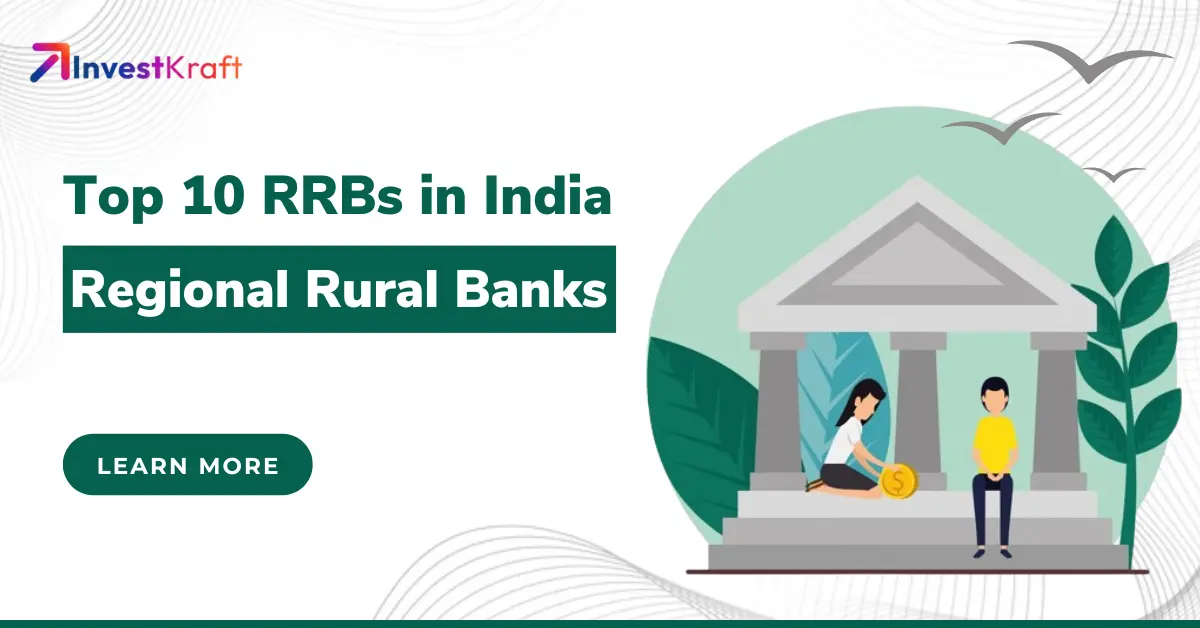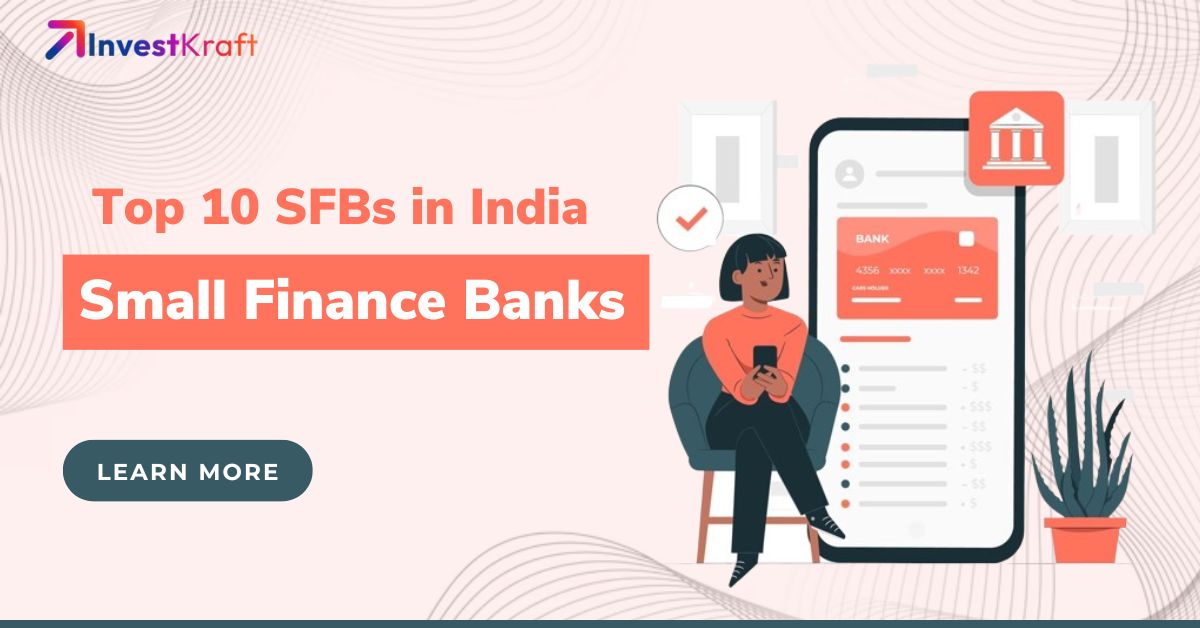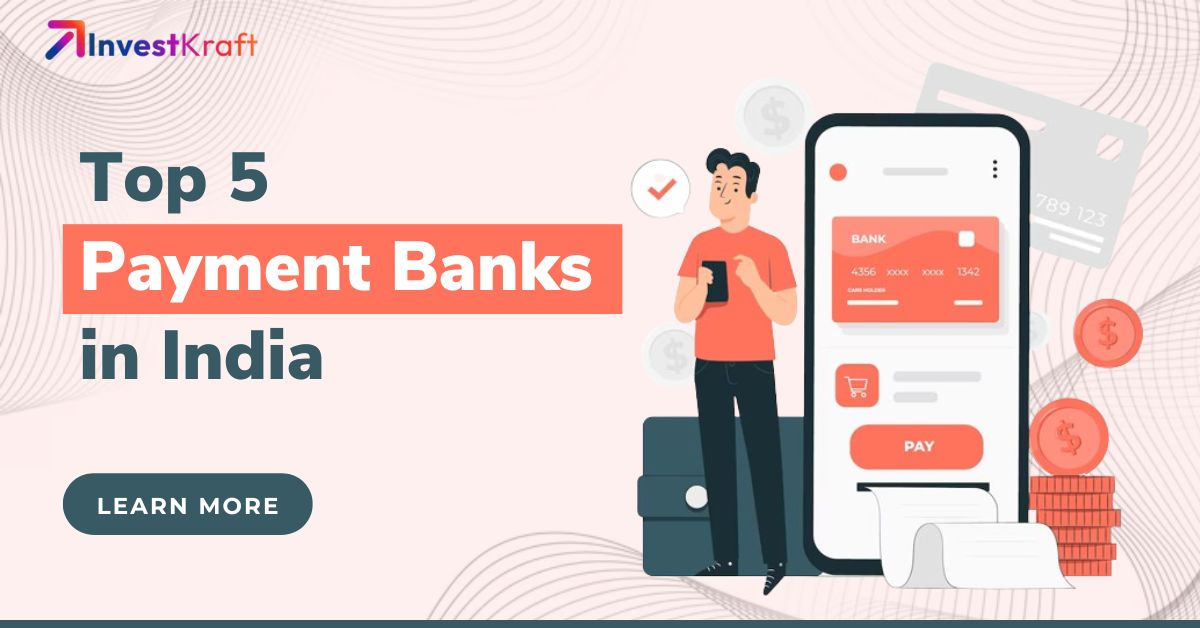How Does the Moratorium Period Act as a Life Raft for Borrowers?
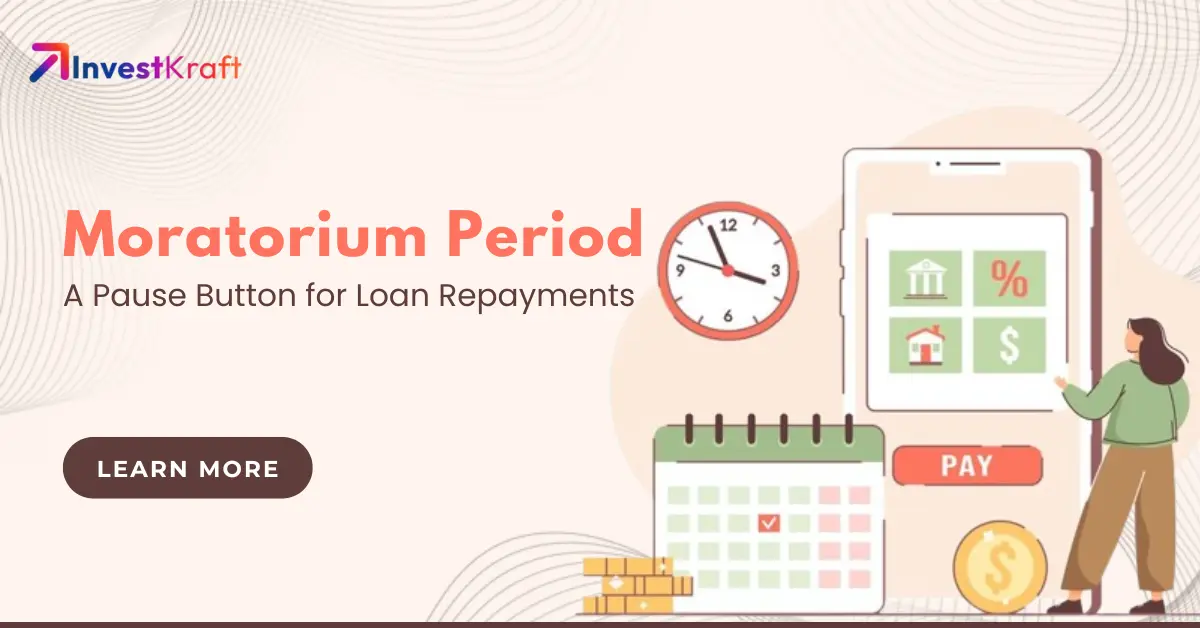
Financial jargon, whether taking a loan or opening a bank account, can be confusing and tricky. These words and phrases may not be a part of your everyday vocabulary, especially if you do not have a finance background. However, it is important to understand these terms when entering into any financial contract, particularly for high-value loans like a home loan
The moratorium period is a crucial term to understand when applying for a home loan, as it refers to the specified duration during which the borrower is not required to make any principal repayment. This period provides financial relief to borrowers, allowing them to focus on other expenses such as settling into their new homes. Understanding the details of the moratorium period is essential for making informed decisions when obtaining a home loan.
Moratorium Period: A Pause Button for Loan Repayments
A moratorium period is usually offered when a loan is approved, giving the borrower time to organize their finances and get ready to start repaying the loan. This period can also be granted later in the loan’s term if the borrower needs to halt payments for a certain duration due to financial hardship, although interest on the loan continues to accrue during this time.
Example of Moratorium
The global outbreak of the novel Coronavirus (COVID-19) resulted in widespread infections across numerous countries and led to the implementation of lockdowns in various regions. The economic repercussions were severe, with markets crashing and economies entering into a recession.
India, among other nations, imposed a nationwide lockdown to combat the spread of the virus, causing significant disruptions to daily life and the economy. Consequently, the Reserve Bank of India announced a 3-month moratorium period on term loan payments to provide relief to borrowers facing financial challenges during this period.
How Does a Moratorium Period Act as a Safety Net in Time of Crisis?
The moratorium period offers much more than just financial relief; it also plays a crucial role in ensuring comprehensive financial health by -
- Reducing financial stress and providing the breathing room needed to make more thoughtful financial plans. It is important to prioritize finding ways to alleviate financial pressure to create a more stable financial future
- Helping to plan your monthly income and expenditure to repay your EMIs.
- Assisting you to save funds for subsequent EMIs or paying for other expenses.
- Allowing you the freedom to switch your job or try out a new adventure that requires immediate funding.
- Not impacting your credit score negatively.
- Helping you prepare for the EMIs better.
- Halting outflows towards loan repayments, improving liquidity and enabling the allocation of funds to more immediate needs or investments.
- Freeing up resources that can be strategically invested elsewhere, potentially yielding returns that outweigh the cost of the accrued interest during the moratorium.
What are Some of the Potential Drawbacks of the Moratorium Period?
As with everything, there surely ought to be some drawbacks or disadvantages of the moratorium period and the same has been discussed in this section -
- It is important to understand that during a moratorium, interest continues to accumulate on the principal amount, ultimately increasing the total amount payable over the loan term. Borrowers need to weigh the immediate relief of paused EMI payments against the potential long-term increase in the loan’s cost. Therefore, it is essential to carefully consider the financial impact before opting for a moratorium.
- Lenders often extend the loan tenure to accommodate paused payments. However, this means being in debt for a longer period, potentially impacting future financial plans and commitments.
- The temporary suspension of loan payments could tempt some borrowers to spend their saved funds on non-essential items rather than using them to pay off their EMIs. Without careful financial planning, this could result in a more challenging financial situation when the moratorium period comes to an end.
- Choosing a moratorium will impact your taxes since the tax benefits on interest payments will be affected.
- Extending your loan by 6 to 10 months is possible by deferring two EMIs.
Key Considerations Before Applying for a Moratorium
It is good to remember that the EMI moratorium has a cost involved in terms of increased interest payments, which will only add to your EMI burden, or increased loan tenure if the 3 months’ interest is not paid at the end of the moratorium period. Hence, before deciding to opt for this moratorium consider the following factors.
- During a short-term liquidity crisis caused by an inability to earn income or reduced income, it is advisable to choose the moratorium and prioritize maintaining ample liquidity. Opting for the moratorium will not harm your credit score, allowing you to focus on present challenges instead of worrying about future ones
- If you opt for the EMI moratorium for three months and decide to keep the EMI unchanged after it ends, your loan tenure will be extended by 3 months. As a result, you will need to continue paying EMIs for an additional three months because interest will accrue during this period and must be repaid later
- If the interest rate on your loans, particularly credit cards, is high, it is advisable to avoid opting for the loan moratorium unless facing a liquidity problem. Before making a decision, consult with your lender to understand the potential increase in interest and its impact on your EMI or loan tenure
- Taking the moratorium on your loan means that you will still be charged interest at the contracted rate for the period of the EMI moratorium. This interest will be added to the outstanding loan amount and you will end up paying more throughout the loan
Who is Eligible to Apply for a Moratorium Period?
Borrowers who have availed of any of the below-mentioned loans and have not had any repayment default till March 31, 2024, are eligible to apply for a moratorium period -
- MSME loan
- Consumer durable loan
- Education loan
- Automobile loan
- Home loan
- Consumption loan
- Credit card repayment
- Personal loan
Conclusion
During unexpected financial hardships, it is easy to feel overwhelmed by loan repayments. A moratorium period can provide essential relief, allowing borrowers to temporarily halt their repayment obligations. This safety net can be a crucial lifeline, offering some breathing room during challenging times.
Consider it as an opportunity to temporarily pause your loan repayments, offering much-needed financial relief and a chance to recharge. This crucial moment can bring significant changes in your financial situation.
It is important to consider the overall impact. Even though there may be a temporary break, the interest will still accumulate, leading to a higher repayment amount. Furthermore, the loan term may be extended, resulting in a longer duration of indebtedness.
Carefully considering these points can help you effectively utilize the moratorium period as a valuable tool to overcome financial challenges and secure your long-term financial well-being. It is important to remember that the moratorium period is designed to support you, so make the most of it to attain financial peace of mind.
Frequently Asked Questions (FAQs)
Q: How do I qualify for a moratorium period?
A: To qualify for a forbearance moratorium, you will need to reach out to your lender and provide an explanation of your financial difficulties. Depending on the lender’s policies and your specific circumstances, they may require documentation to support your claims
The details of pre-scheduled moratoriums are typically specified in the loan agreement you signed initially.
Q: What are the benefits of a moratorium period?
A: Moratorium periods offer crucial financial relief amidst difficult circumstances. They come with several important advantages:
- Reduced monthly expenses
- Prevents default
- Time to recover
Q: What are some alternatives to a moratorium period?
A: Besides the moratorium period, there are other alternatives to consider when facing financial difficulty. These alternatives can help alleviate the situation and provide an additional solution:
- Loan modification
- Deferment
- Debt consolidation
Q: What happens to my interest during a moratorium period?
A: During a moratorium period, interest on your loan balance usually continues to accumulate, causing your total amount owed to increase. However, certain lenders may provide temporary interest rate reductions during this time for borrowers who are experiencing extreme financial difficulties.
Q: How can I minimize the cost impact of a moratorium period?
A: Interest continues to accumulate during the moratorium period, but there are strategies available to reduce the overall expense:
- Take advantage of the opportunity to make interest-only payments during the moratorium period, should your lender provide this option
- Allocate any additional funds you have towards the principal balance
- After the moratorium, it is advisable to consider shortening the loan term
Q: Does a moratorium affect my eligibility for future loans?
A: Using a moratorium to prevent loan defaults may have the unintended consequence of temporarily lowering your credit score, as some lenders may report it to credit bureaus. The extent of the impact will vary based on your financial situation and credit history
Q: What should I do after a moratorium period ends?
A: After the moratorium period ends, it is important to resume making regular loan payments on time. To ensure a smooth transition, follow the given steps:
- Review your loan statement
- Set up a budget
- Explore repayment options
Q: Are there any government programs offering moratoriums?
A: During economic difficulties, governments may initiate temporary moratorium programmes for specific loan types, such as student loans or mortgages, to offer widespread relief. These programmes are tailored to the country’s economic condition and can provide significant assistance during the challenging times

Author: Abhik Das
Abhik Das is a versatile content writer with over 5 years of experience crafting engaging and informative content across diverse industries. His expertise spans the fields of ed-tech, pharmaceuticals, organic food, travel, sports, and finance.
Here's what sets Abhik apart:
Content Versatility: Able to adapt writing style and tone to suit various audiences and content needs.
SEO Proficiency: Creates content optimized for search engines, ensuring discoverability and organic traffic.
Deep Research: Conducts thorough research to ensure content accuracy and credibility across complex topics.
Engaging Storytelling: Captures reader interest with clear, concise, and compelling writing.
Abhik's diverse background empowers him to deliver insightful content across a wide range of subjects. Whether you're seeking engaging explainer pieces on the latest financial trends, informative guides to organic food choices, or captivating travelogues, Abhik has the expertise to craft content that resonates with your audience.









